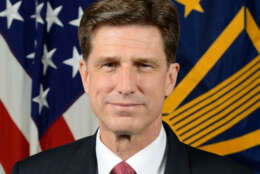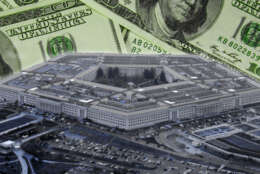Pay
-
DoD CIO Dana Deasy says officials have been finding temporary homes for cloud applications that were counting on the long-delayed JEDI program. Other preparatory that's not technically part of the contract has been proceeding apace too.
October 05, 2020 -
Military members and federal employee groups worry those impacted by the president's mandatory payroll tax deferral aren't getting the message about the extra dollars they're seeing in their paychecks -- and that they'll have to pay it all back next year.
September 28, 2020 -
After reviewing the policy's impact on the organization and workforce, the U.S. Postal Service has decided it will not implement the president's payroll tax deferral, USPS announced Tuesday.
September 23, 2020 -
The modern day equivalent of a panic-starter is to bring up the subject of the Government Pension Offset or Windfall Elimination Provision to retired federal or state government employees, or their spouses.
September 23, 2020 -
Every year thousands of federal workers turn down an extra 1%-4% or more contribution from the government to their TSP account because they can't afford it.
September 22, 2020 -
The idea of pay for performance has appeal in the federal workplace. But is it true? American University professor Bob Tobias is skeptical.
September 18, 2020 -
Federal News Network has created a calculator to help you estimate how much you'll receive in deferred payroll taxes between September and the end of the calendar year -- and how much you can expect to pay back in 2021.
September 15, 2020 -
Normally this time of year, the issue of a federal pay raise in the following January is sort of a big deal.
September 15, 2020 -
The Office of Management and Budget has at last issued written guidance on the president's upcoming payroll tax deferral for federal employees and military members. But if employees are expecting answers, they'll come up with few definitive details.
September 11, 2020 -
The deferral plan won't save anybody one dollar and will come back to bite people who spend their windfalls
September 11, 2020 -
Given the choice, would you take a reduced CSRS or FERS annuity later — for life — if it meant you could telework from the geographic location of your choice?
September 10, 2020 -
The president's upcoming payroll tax deferral is effective for civilian federal employees when the current pay period ends Sept. 12, the Defense Finance and Accounting Service said. For active-duty military, the president's payroll tax deferral is effective for the mid-month paycheck Sept. 15.
September 08, 2020 -
A 1% federal pay raise for civilian employees looks more likely with every passing day. But when it comes to next year's paycheck, the president's planned payroll tax deferral throws a wrench into things.
September 07, 2020 -
Both federal civilian employees and active-duty military members will see temporary changes to their take-home pay as a result of the president's tax deferral, a senior administration official told Federal News Network. Though civilian employees and the military will see savings later this month, they're expected to pay back deferred taxes starting next January.
September 04, 2020 -
In an email sent to some civilian workers Tuesday, a large defense agency said no federal employee, department or payroll provider will be able to opt out of the president's upcoming payroll tax deferral planned later this month. All federal payroll providers are expected to "act in unison."
September 02, 2020













